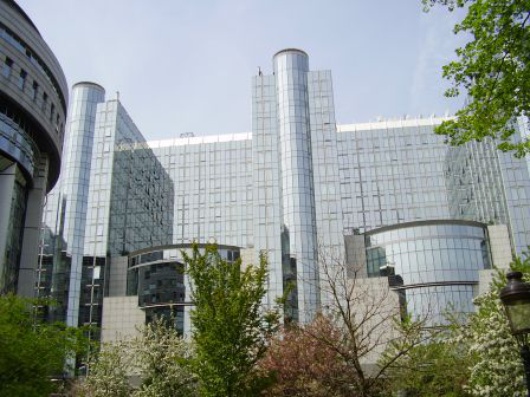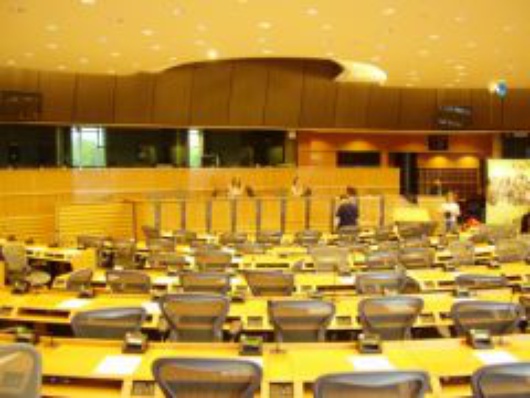Elections for the European Parliament
Published on
The final lists with the candidates for the European Parliament elections, set on 25th November, have been sent yesterday to the Central Electoral Office. The political parties finally decided whom to send to Brussels, after many negotiations with their members, as they didn’t want to leave Bucharest not to loose their internal influence and positions.
 The head of list for the Social Democrat Party is its General Secretary, Titus Corlatean, EU observer till the end of 2006, being followed by Adrian Severin, Rovana Plumb and Daciana Sarbu, already representing us at Brussels and Strasbourg from the beginning of 2007.
The head of list for the Social Democrat Party is its General Secretary, Titus Corlatean, EU observer till the end of 2006, being followed by Adrian Severin, Rovana Plumb and Daciana Sarbu, already representing us at Brussels and Strasbourg from the beginning of 2007.
The Social Democrat Party counts on the people that already have a say within the EP as Adrian Severin is the Chairman of the Delegation to the EU-Ukraine Parliamentary Cooperation Committee, Daciana Sarbu is Member of the Committee of the Environment, Public Health and Food Safety and Rovana Plumb is Member of the Committee on Budgets, thus are able to represent our nation at the highest level.
The Democrat Party, whose members will be part of the largest European political group, EPP, aims at obtaining 14 to 16 mandates from the 35 available for Romania. Counting on the favorable public opinion and the charismatic presence on the political stage of Traian Basescu their former leader, presently President of Romania, the Democrat Party has all the reasons to hope obtaining around 40% of the votes.
 Its strategy is sending to Brussels young motivated politicians, having both the linguistic and the political abilities for representing us within the EP. Sorin Frunzaverde, ex Minister for the National Security, is the first one on their list, followed by names less well known for the public: Roberta Anastase, Monica Iacob Rizdi, Marian Jean Marinescu, part of them already working at the EP from the beginning of this year.
Its strategy is sending to Brussels young motivated politicians, having both the linguistic and the political abilities for representing us within the EP. Sorin Frunzaverde, ex Minister for the National Security, is the first one on their list, followed by names less well known for the public: Roberta Anastase, Monica Iacob Rizdi, Marian Jean Marinescu, part of them already working at the EP from the beginning of this year.
The innovation concerning the electoral lists came from the National Liberal Party which decided to nominate as header candidates two persons working within the civil society: Renate Weber, president of the Open Society Foundation from Romania and former presidential counselor on juridical aspects, for Traian Basescu, and Daniel Daianu, Romanian economist, Minister of Financial Affairs in 1997-1998, presently professor at the Academy for Economic Studies from Bucharest and member of the Romanian Academic Society.
The Vice-president of the party, Ludovic Orban, explained their decision as being an initiative of promoting notorious and independent people, with a strong background in European affairs and European legislation. Of course that on the list we find members of the party, like Adina Valean, Cristian Busoi or Ramona Manescu, already MEPs in Brussels.
There are four political groups more that entered the electoral competition. The first is the party represents the Hungarian Minority in Romania, the Democratic Union for the Hungarians in Romania, the second is the Great Romania Party, an extreme right party, that designated Eugen Mihaescu as the leader of their list, followed by their other MEPs that are part from the ITS group. The third one is the Conservative Party, which has an uncertain faith, not being sure it could gather 5% of the votes, being in the same situation with the forth, the New Generation Party, whose leader, Gigi Becali, the owner of the football club Steaua Bucharest, has nothing to do with politics.
As regarding the electoral campaign, although all the politicians state that the debate will center on European matters, the internal problems are expected to dominate the disputes between the candidates.



